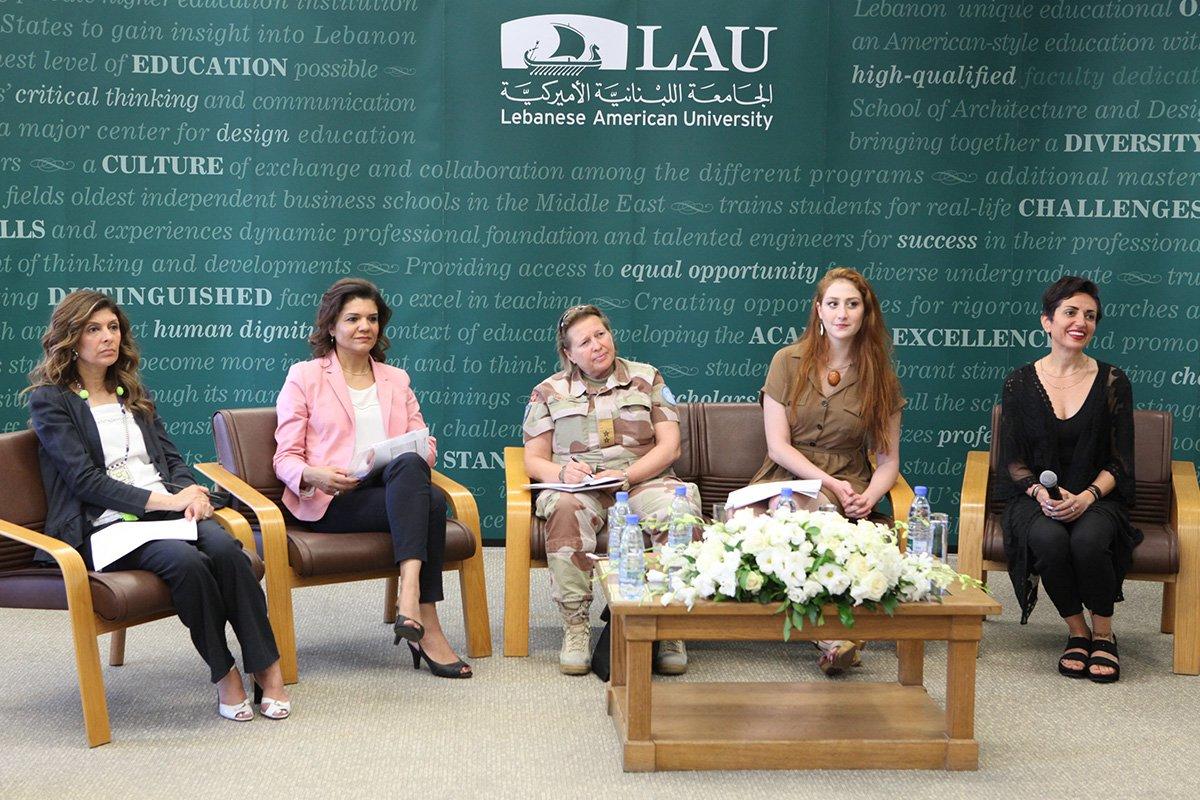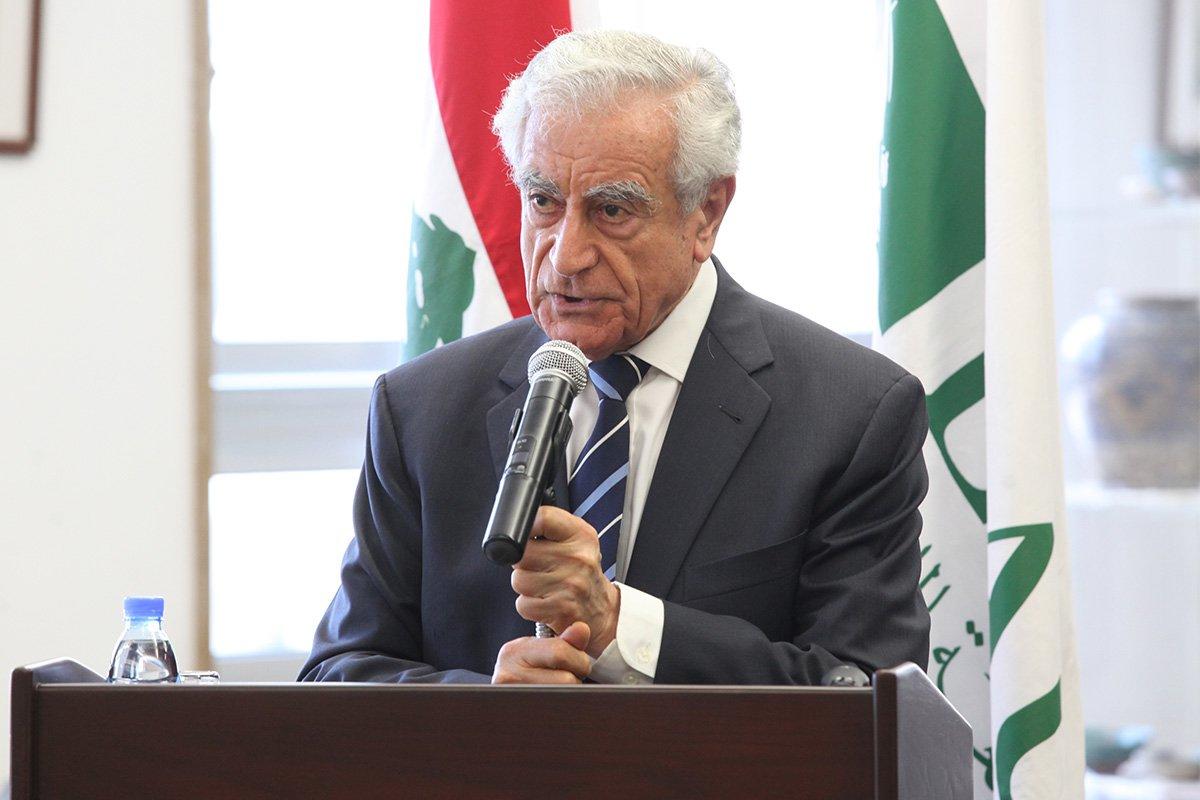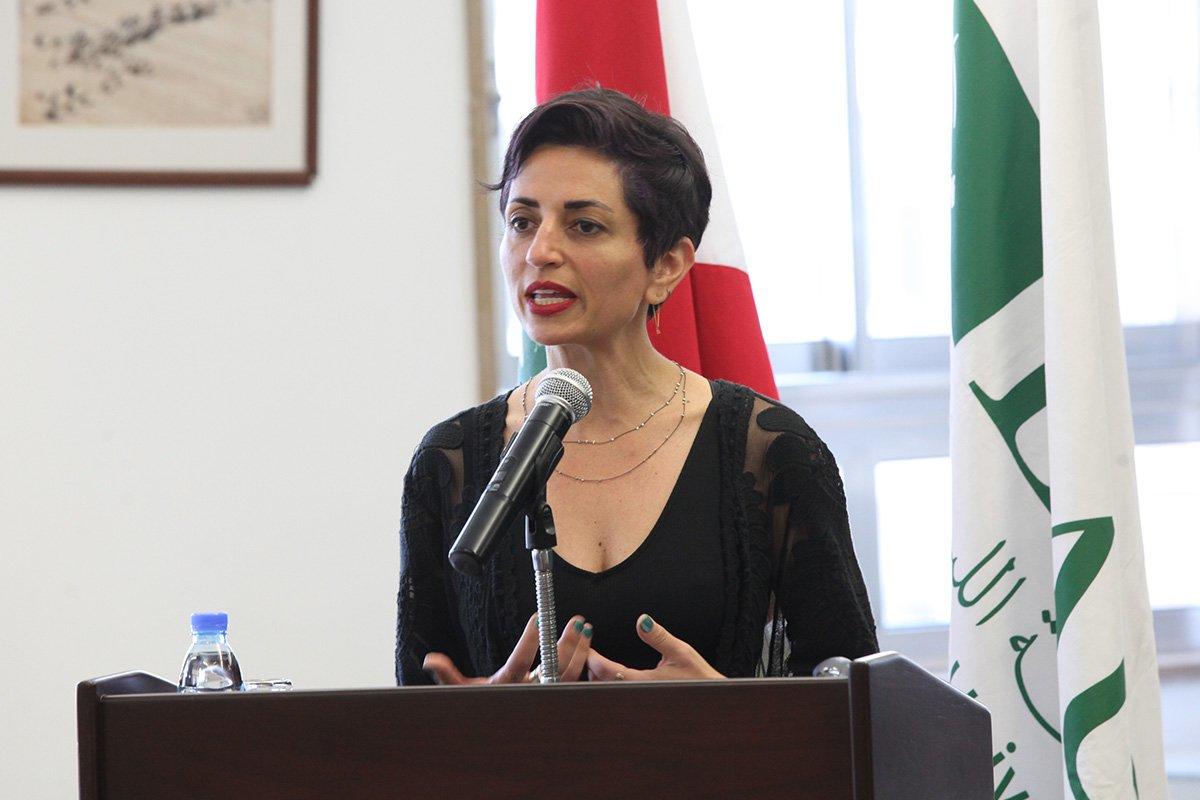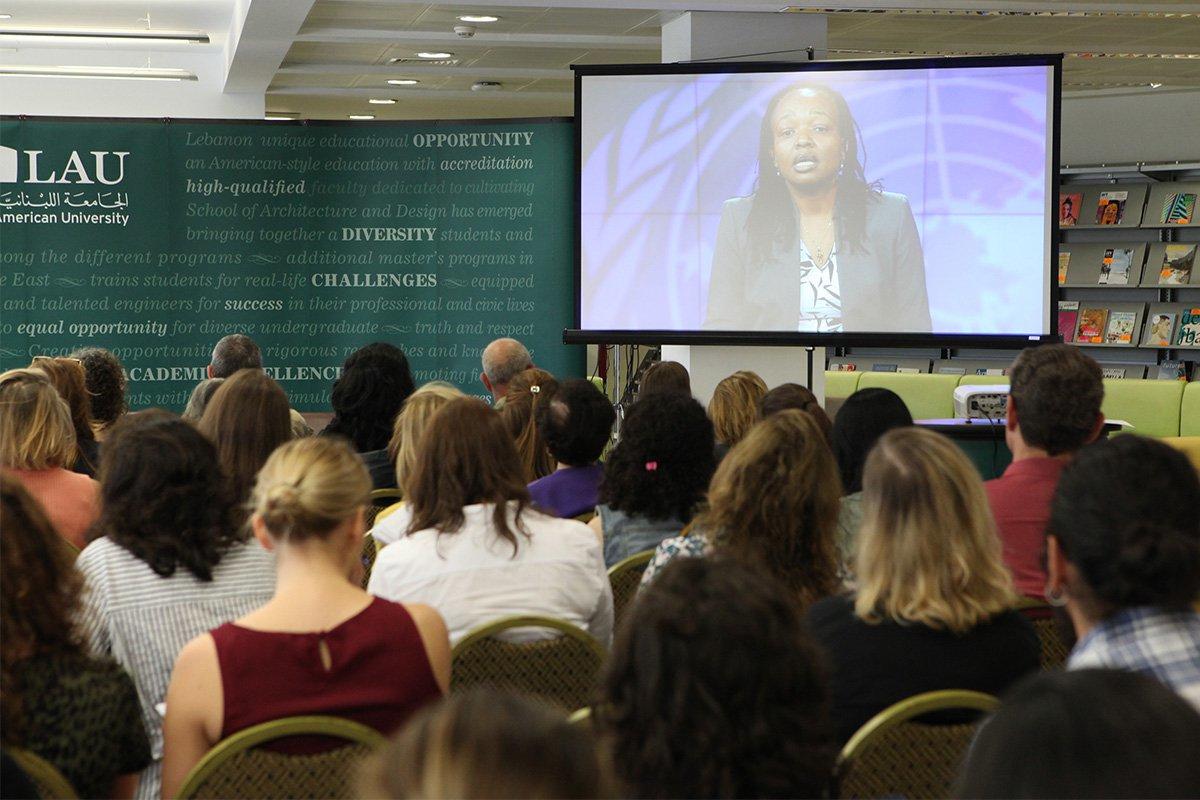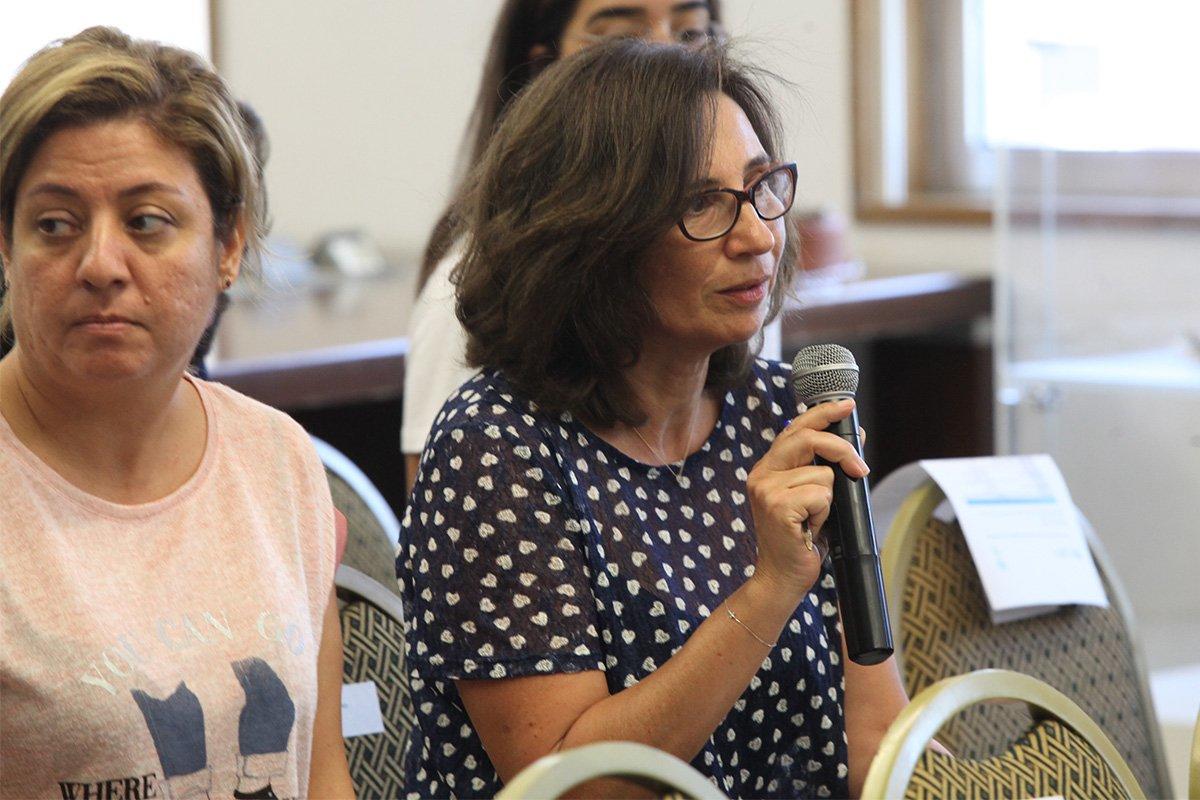Advancing the Women, Peace and Security Agenda in the Arab Region
AiW panel draws lessons from powerful women in key positions across the region and beyond.
In partnership with the Economic and Social Commission of Western Asia (ESCWA), The Arab Institute for Women (AiW) hosted prominent women who are pushing the envelope for gender equality. From advocating for reforms from within the Lebanese government, to promoting youth entrepreneurship and leading roles such as the United Nations Truce Supervision Organization (UNTSO) Head of Mission Major General Kristin Lund, panelists varied in their fields of work, but converged for Advancing the Women, Peace and Security Agenda in the Region, the panel which took place at the Riyad Nassar Library in June.
In his welcome note, LAU President Joseph G. Jabbra welcomed attendees and said that it is absolutely essential not only to have women participate in the decision-making process, but to also make sure that women are politically and economically empowered – “two conditions for them to become active participants in the promotion of civilization, which is far too precious to leave only to men.”
While introducing the panel, AiW Executive Director Lina Abirafeh invited attendees to unpack what “women, peace and security” really mean – both in combination and from the perspective of women. “We know that it has been almost 20 years since the landmark UN Security Council Resolution 1325,” said Dr. Abirafeh, referring to the unanimously-adopted resolution that acknowledges the disproportionate and unique impact of armed conflict on women and girls.
“We talk about the pillars that underlie this resolution: prevention, protection, relief, recovery and meaningful inclusion of women – but I think we can do far better than that,” she added, drawing on evidence-based examples of how states that are fundamentally unequal in terms of gender tend to be more prone to conflict.
Vice President of the National Commission for Lebanese Women (NCLW) Abir Chebaro spoke about her involvement with the National Action Plan for Lebanon. Tasked by the Lebanese Prime Minister, NCLW followed “a participatory approach,” forming a committee of civil society actors, including LAU’s own AiW, alongside United Nations agencies and nonprofits working in Lebanon, as well as six ministries.
Chebaro explained that the action plan is steered toward ensuring that Lebanon’s commitments to the UN Sustainable Development Goals (SDGs), particularly those that pertain to women, peace and security, “become a reality through policy-action change.”
Director of the ESCWA Center for Women Mehrinaz Al-Awady brought in a more regional perspective. After presenting on the plight of women who have lived and continue to live through armed conflicts, Dr. Al-Awady pointed to a glimmer of hope: “Arab women have demonstrated resilience and agency despite the challenges.” In Yemen, she elaborated, women successfully pushed for an end to victimizing women and girls and recruiting child-soldiers; In Sudan, female activists spearheaded the protests calling for Omar Al-Bashir to step down; In Iraq, women continue to work across sectarian lines to develop gender-senseless strategies for the national reconciliation process after the fall of the Islamic State; and in Syria, women took part in peace talks in local negotiations. “Just a few examples of roles that Arab women play in creating and sustaining peace,” added Dr. Al-Awady.
One such example manifested itself in Serene Dardari, managing director at Chams Network and LAU alumna, who spoke about her experience as a Syrian activist, having founded a network that encourages social entrepreneurship. “I refuse to live in a world where it is more profitable for a man to join an armed group than it is for a woman to create a startup,” declared Dardari, sharing ideas for reform, including making education more accessible, raising feminist men, calling for better resource management and holding politicians accountable, among others.
For Major General Lund, “laws are important to pass, but I invite you to focus your power on implementing them.” She gave the example of how Middle Eastern countries have all endorsed UN resolutions. Speaking about her years rising through the ranks at the UN, from Lebanon to Afghanistan and the Arab Gulf, she pointed to “having to work twice as hard as men to be addressed as an equal,” and the importance of having women empower other women when they do get into positions of power. In her final remarks, Major General Lund also called for a solid grassroots movement to empower the ordinary women in this region, as “the ‘why’ has passed and it is now time for the ‘how’.”
A dynamic Q&A session ensued, involving members of different governmental, nonprofit and media organizations, who delved into Lebanon’s stance on UN resolutions and SDGs, Major General Lund’s views on security in the region and her own role in peace building.
